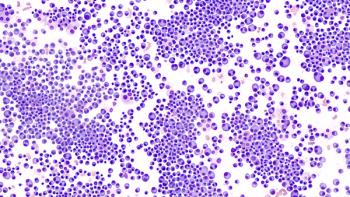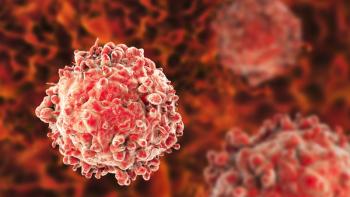
Antidepressant May Improve Prostate Cancer Outcomes
The antidepressant phenelzine showed antitumor activity in patients with biochemical recurrent castrate-sensitive prostate cancer, according to a pilot study conducted by researchers at the University of Southern California (USC).
The antidepressant phenelzine showed antitumor activity in patients with biochemical recurrent castrate-sensitive prostate cancer, according to a pilot study conducted by researchers at the University of Southern California (USC).1,2
The findings, which were published in the journal Prostate Cancer and Prostatic Diseases, showed that 11 of 20 patients who received phenelzine had a measurable reduction in their prostate-specific antigen (PSA) levels following 12 weeks of treatment with the MAO inhibitor. The highest level of PSA decline was 74% in 1 patient.
“If our findings are confirmed, this could part of a new avenue for patients that could avoid undesirable side effects of standard therapies,” first author Mitchell Gross, MD, PhD, a medical oncologist and research director at the Lawrence J. Ellison Institute for Transformative Medicine of USC, said in a press release.
Phenelzine is a monoamine oxidase inhibitor (MAOI). The MAOI class of antidepressants inhibit the activity of 1 or both monoamine oxidase enzymes: monoamine oxidase A (MAOA) and monoamine oxidase B (MAOB). According to the USC researchers, preclinical models demonstrated that MAOA impacts prostate cancer growth and metastasis, generating the rationale for this pilot study.
The open-label, single-arm trial accrued patients with biochemical recurrent prostate cancer, which the study design defined as PSA ≥ 0.4 ng/ml (after prostatectomy) or PSA ≥ 2 ng/ml above nadir (post-radiation therapy). Additional inclusion criteria were no signs of metastasis on imaging and normal androgen levels.
At baseline, the mean age was 66.9 years (SD ± 4.8) and the mean PSA was 4.7 ng/dl (SD ± 5.8). Phenelzine was administered orally at 30 mg twice daily. The primary endpoint of the study was the rate of patients who had a PSA decline of ≥50% from baseline.
Five (25%) patients had a ≥30% PSA decline and 2 (10%) patients had a ≥50% PSA decline. At 12 weeks, there were 17 patients still receiving treatment. Of these 17 patients, 4 (24%) had a ≥30% PSA decline and 1 (6%) had a ≥50% PSA decline.
Regarding safety, the investigators wrote in the conclusion of their research, “Most treatment-related toxicities were mild, but rare significant and reversible cardiovascular toxicities were observed.”
The most frequently occurring toxicities included dizziness, hypertension, and edema. Grade 1 dizziness occurred in 45% of patients, with grade 2 occurring in 35%. Hypertension cases, which
were all grade ≥2, occurred in 30% of patients. Grade 1 edema was reported in 25% of patients, with 10% of patients experiencing grade 2 severity.
Grade 4 hypertension (cycle 4) requiring treatment discontinuation occurred in 1 patient. Additionally, 2 patients had to discontinue treatment due to grade 3 syncope (cycle 12 and cycle 14).
The researchers also evaluated mood symptoms using the hospital anxiety depression score (HADS) questionnaire. Results of the HADS questionnaires showed a significant alleviation of anxiety; however, the patient responses showed that the treatment induced no change in depressive symptoms.
“To our knowledge, this study is the first clinical trial of an MAO inhibitor in cancer patients,” senior author Jean Shih, PhD, a university professor at the USC School of Pharmacy who has studied the enzyme MAO for 4 decades, said in the press release.
Also according to the press release, the investigators have additional studies planned, and
“Shih has patented a second-generation MAO inhibitor tagged with a substance that could help doctors see where the cancer has spread.”
References
1. Repurposed antidepressant could be a new treatment for recurrent prostate cancer. USC. Published March 3, 2020. https://bit.ly/38q3wet. Accessed March 3, 2020.
2. Gross ME, Agus DB, Dorff TB, et al. Phase 2 trial of monoamine oxidase inhibitor phenelzine in biochemical recurrent prostate cancer [published online March 3, 2020]. Prostate Cancer Prostatic Dis. https://doi.org/10.1038/s41391-020-0211-9
This article originally appeared on OncLive as, "
Newsletter
Knowledge is power. Don’t miss the most recent breakthroughs in cancer care.
















































































